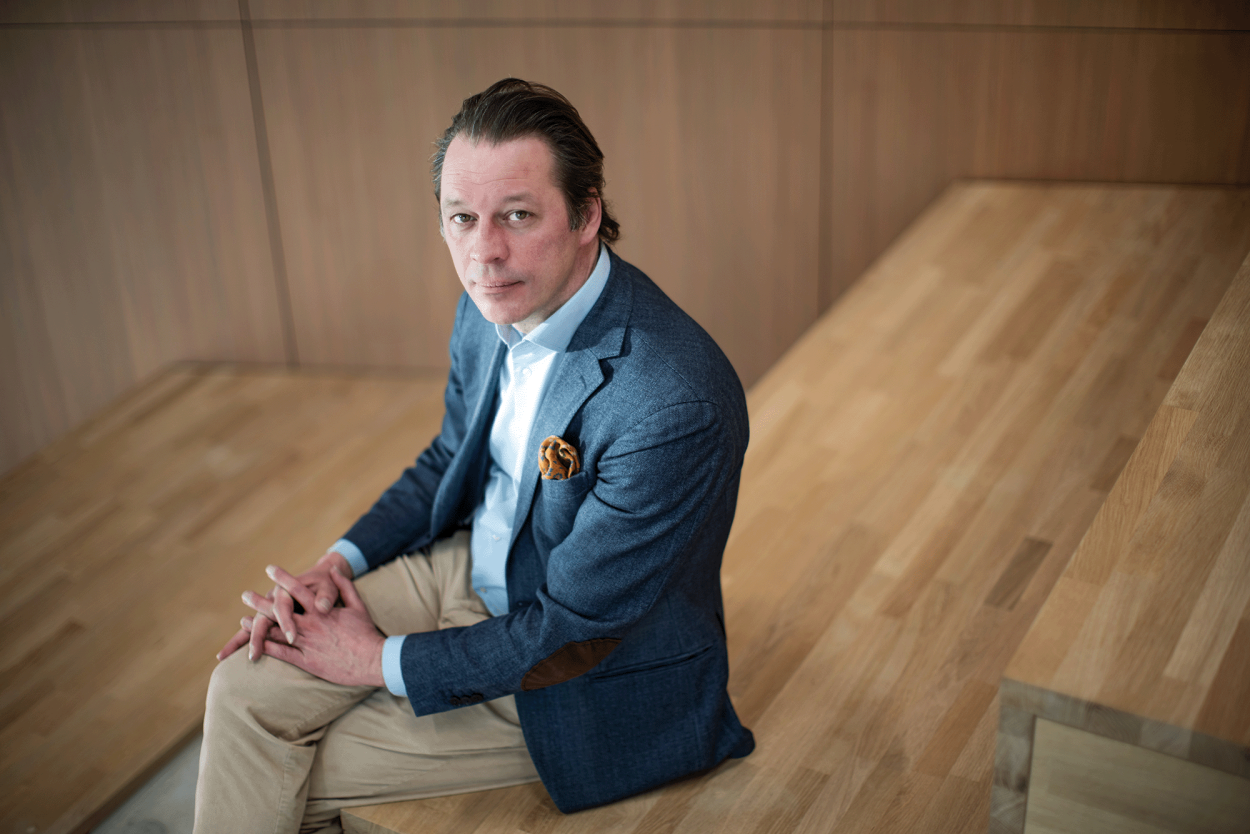
At VUB, we cherish the ‘V’ for freedom (vrijheid). It’s the heartbeat of our story — a compass for resistance and progress. In Vrije Geesten (Free Spirits), 32 scientists and thought leaders share their love of freedom and what the ‘V’ in VUB means to them. Personally. Professionally. In their lives and in their work. They challenge us to look at the world with a critical mind and an open heart. One of them is Koert Debeuf, VUB professor of Middle Eastern studies.
"War is the endgame of a process of tribalism. A shrinking of perspective where it becomes ‘us’ versus ‘them’, and the other is turned into the enemy. Unlike in the past, algorithms now accelerate this tunnel vision. We click our way into unfreedom. It keeps us from being who we want to be: free thinkers."
“I’ve been in several war zones, and what you see there is that nuance disappears – and so does interest in other perspectives. That’s as old as war itself. But what’s new is how we now consume information: our viewpoint is being narrowed day by day, often without us even realising it. We click ourselves into a rabbit hole where we only see and hear opinions that align with our own – or worse, we’re nudged towards conspiracy theories we’d never have considered otherwise. Opinions designed to keep us locked in the echo chamber that is the internet. Where once we followed dogmas, we now follow algorithms.”
“In theory, social media and the internet could expose us to a wide range of perspectives. I have around 5,000 Facebook friends, but I never see more than 100 of them in my feed. I have no idea what the others are thinking – but the algorithm knows my preferences better than I do. And the real issue? We have little to no control over it. Our societies become increasingly polarised and fragmented because we no longer see or hear differing views. There’s a lot of commentary, but very little genuine dialogue.”
“We need a new kind of Magna Carta”
“I’m a researcher at The Centre for the Resolution of Intractable Conflict in Oxford. This year, I’ll be speaking at their conference on ‘Ending Wars’. If we want wars to end, we have to start by challenging the algorithm. I try to do that by actively seeking out opinions that don’t align with mine – by reading newspapers that present opposing views. It’s uncomfortable, sometimes even makes my stomach turn, but it’s the only way to maintain a broad perspective.”
“This is a global political issue, driven by the financial motives behind social media: the longer you stay on the platform, the more money they make through advertising. But what happens when people like Elon Musk decide to enter politics and use their own platforms for political gain? That’s when things get truly alarming.”

“That’s why I believe we need a new kind of Magna Carta – over 800 years after the original limited the power of the king and guaranteed our physical freedom. Today, we need new rules to protect our intellectual freedom, so that we can continue to think freely rather than be led by machines whose workings we don’t understand. The plug can still be pulled. Since the original Magna Carta, we’ve spent 800 years fighting against monopolies, political interference, and institutional dominance. Yet now, these forces have crept back into our lives almost silently. The European Union has the power to act – with antitrust laws that can introduce more competition and impose restrictions. This isn’t about freedom of speech, it’s about freedom of information: the right to think freely and to understand the world in all its complexity.”
“Today, we’re hearing an increasing call to rearm, to strengthen our military forces. That opinion goes largely unchallenged, even though we are free to question it. There’s little debate. We’re trapped in a narrowing of perspective that feeds the language of war. We’re entering a kind of logic that feels inevitable, unbreakable. We know where it leads, and yet it seems unstoppable – a kind of madness, as Barbara Tuchman described in her book The March of Folly. The essence of free thinking is to step out of that march – and to persuade others to do the same. After all, no war begins without public support. And when that support crumbles, the war ends.”*
Bio Koert Debeuf
Koert Debeuf, Professor of Middle Eastern Studies at VUB, is a historian, philosopher, political analyst, and opinion writer. He previously served as an advisor and speechwriter to former Belgian Prime Minister Guy Verhofstadt and was editor-in-chief at EUObserver. He now works as a geopolitical advisor and researcher affiliated with Oxford University and VUB. His work combines historical and geopolitical analysis with personal insights and experiences from the field.
*This is a machine translation. We apologise for any inaccuracies.